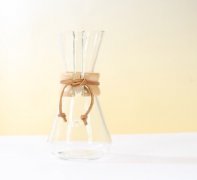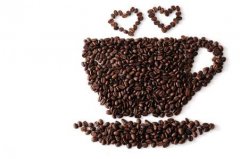Can excessive consumption of coffee and tea in women lead to iron deficiency anemia?

According to Singapore Lianhe Zaobao, a recent survey by the World Health Organization shows that about 50% of girls, 20% of adult women and 40% of pregnant women will develop iron deficiency anemia.
Iron deficiency anaemia is a common disease in infancy, with an incidence of up to 20% to 38%. The physiological characteristics of women determine that women are prone to anemia. Adolescent girls grow vigorously, the body's demand for iron is large, coupled with menstrual cramps, prone to iron deficiency anemia. Pregnant and lactating women to provide fetal nutrients, iron requirements greatly increased, if not additional supplements, anemia is almost inevitable.
Middle-aged women affected by IUD, uterine fibroids, menstrual volume more, iron loss has become inevitable. The gastrointestinal tract absorption function of elderly women declines, hematopoietic function is weak, and the occurrence of anemia is also increasing. However, in addition to their own physiological characteristics, women have some misunderstandings and behavioral habits in diet, which are also important reasons for iron deficiency anemia.
Iron supplementation is the first rule of treatment for iron deficiency anemia, but there are still many misconceptions.
Myth 1: Eating more meat is bad for your health.
Some women are misled by the general advertising of meat damage to health, focusing only on the health benefits of plant foods, resulting in too little intake of iron-rich animal foods. In fact, animal foods are not only rich in iron, but also have a high absorption rate of 25%. The iron element in plant foods is disturbed by phytate and oxalate contained in foods, and the absorption rate is very low, about 3%. Therefore, bogey meat is easy to cause iron deficiency anemia, in the daily diet, fruits and vegetables and meat intake should be balanced.
Mistake 2: Egg and milk are more beneficial to anemia.
Milk is nutritious enough, but the iron content is very low, and the human absorption rate is only 10%. For example, milk-fed infants, if parents neglect to add complementary food, often cause iron deficiency anemia.
Egg yolk iron supplement is good, although the iron content of egg yolk is high, but its iron absorption rate is only 3%, not iron supplement. Certain proteins in eggs inhibit the body from absorbing iron. Therefore, these two kinds of parents often give their children to eat food, although rich in nutrients, but to rely on them to supplement iron is insufficient. However, animal liver not only contains high iron content, but also has an absorption rate of more than 30%, which is suitable for iron supplementation. In addition to physiological characteristics, women in the diet there are some cognitive errors and behavioral habits, will lead to iron deficiency anemia.
Myth 3: Vegetables and fruits are not good for iron.
Many people do not know that eating more vegetables and fruits is also good for iron supplementation. This is because vegetables and fruits are rich in vitamin C, citric acid and malic acid, which can form complexes with iron, thereby increasing the solubility of iron in the intestinal tract and facilitating the absorption of iron.
Myth 4: Coffee and tea are fine.
For women, excessive consumption of coffee and tea may lead to iron deficiency anemia. This is because tannic acid in tea and polyphenols in coffee can form insoluble salts with iron to inhibit iron absorption. Therefore, women should drink coffee and tea in moderation, one or two cups a day.
Of course, iron deficiency anemia can be caused by disease in addition to nutritional factors. Such as hemorrhoids, tumors, digestive tract ulcers, long-term use of aspirin, etc. Therefore, anemia occurs, to go to the hospital in time to make a clear diagnosis and correct treatment.
Myth 5: Should anemia be stopped?
It is also wrong for an anemic person to take iron according to the doctor's instructions and stop taking it when he sees that his anemia has improved or stabilized. This can result in the recurrence of anaemia. The correct method is to take iron supplements to treat iron deficiency anemia until the anemia stabilizes, and then continue to take iron supplements for 6 to 8 weeks to replenish the stored iron in the body.
Important Notice :
前街咖啡 FrontStreet Coffee has moved to new addredd:
FrontStreet Coffee Address: 315,Donghua East Road,GuangZhou
Tel:020 38364473
- Prev

Do you feel pain after exercise? Have a cup of coffee
Drinking coffee can help many people relieve physical pain caused by excessive exercise, according to a study. The study found that consuming the right amount of caffeine is basically equivalent to drinking two cups of coffee, which can reduce muscle soreness by 48%. However, researchers at the University of Georgia warn that the findings may not apply to people who consume caffeine regularly because
- Next

New study: caffeine may be the savior of baldness
Scientists at the University of Jena in Germany have found that caffeine can stimulate the growth of hair follicles and may provide many men with a new way to treat baldness. A recent survey in five European countries found that British men suffer more from baldness than other Europeans. More than half of men said baldness made them feel older and less attractive. In the latest research, scientists have found that coffee
Related
- Beginners will see the "Coffee pull flower" guide!
- What is the difference between ice blog purified milk and ordinary milk coffee?
- Why is the Philippines the largest producer of crops in Liberia?
- For coffee extraction, should the fine powder be retained?
- How does extracted espresso fill pressed powder? How much strength does it take to press the powder?
- How to make jasmine cold extract coffee? Is the jasmine + latte good?
- Will this little toy really make the coffee taste better? How does Lily Drip affect coffee extraction?
- Will the action of slapping the filter cup also affect coffee extraction?
- What's the difference between powder-to-water ratio and powder-to-liquid ratio?
- What is the Ethiopian local species? What does it have to do with Heirloom native species?

